Dill Leaves: Uses, Benefits, Side Effects By Dr. Smita Barode
By Dr Smita Barode +2 more

Get,

to manage your symptom
Get your,


4 Cr+ families
benefitted

OTP sent to 9988776655



You’ve successfully subscribed to receive
doctor-approved tips on
Whatsapp

Get ready to feel your best.

Hi There,
Download the PharmEasy App now!!


Register to Avail the Offer
Send OTPBy continuing, you agree with our Privacy Policy and Terms and Conditions

Hi There,
Sign up on PharmEasy now!!
Trusted by 4 crore+ families

OTP sent to 9988776655



You have unlocked 25% off on medicines




Code: NU25
By Dr Smita Barode +2 more
Table of Contents
Dill is just a tool in the belt of the chefs and cooks of the world! Dill is one such herb that is used for flavouring and seasoning food. However, it acts as more than just seasoning. It might have certain medicinal properties as well, that lend it as a useful ingredient in alternative medicine. Dill has been used in Ayurveda for managing various ailments and in the preparation of concoctions and medicines. It has also been used in the Unani system of medicine, in the preparation of gripe water used for sudden stomach pain in children (colic)1.
The scientific name of dill is Anethum graveolens and it belongs to the genus Anethum. The genus name has been derived from the Greek word aneeson or aneeton which translates to strong smelling. It is believed that dill is a native of the South-West Asia or South-East Europe. It has been used for medicinal purposes and as a condiment since Egyptian times. A variant called east Indian dill or Sowa occurs in India and is cultivated for its foliage as a cold weather crop throughout the Indian sub-continent, Malaysian archipelago and Japan1.
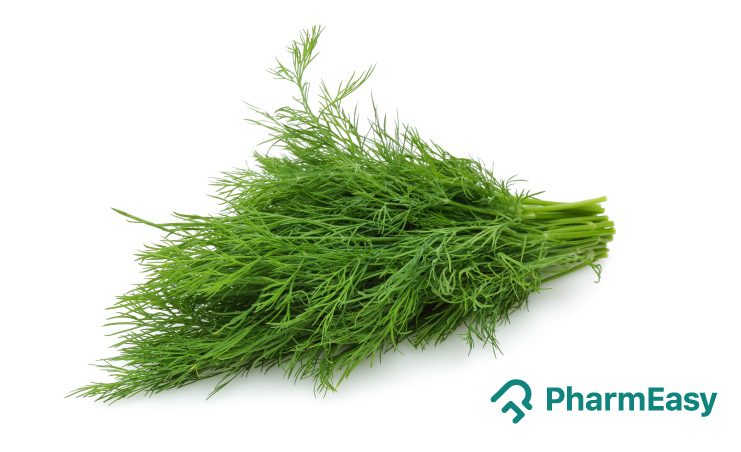
Traces of dill have been found in the Roman ruins of Great Britain too! Later it was thought to have the powers to protect against witchcraft while the Greeks used the dill leaves to induce sleep. Do the uses of dill end here? No. There is more in the following sections1.
The dill leaves have an energy of 180 kJ in them. The following nutrients are present in dill leaves:
Dill leaves might possess the following properties:
Dill leaves might be helpful in many ways for improving our general health. It might have the following potential uses.
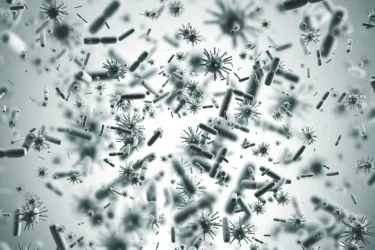
Dill leaves might be effective in the elimination of various bacteria such as S. aureus, E. coli, P. aeruginosa, S. typhimurium, Salmonella typhi, and Shigella flexneri. Therefore, dill leaves might be effective against bacterial infections. However, more research is required. Kindly consult a doctor for proper diagnosis and treatment and do not self-medicate1.
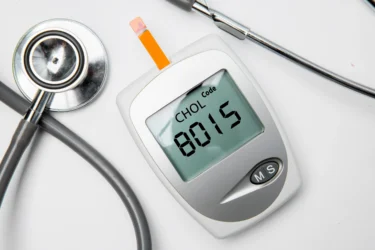
An animal study4 conducted by Yazdanparast and Alvi showed that the water extract of dill leaves might have a cholesterol-lowering effect. It was observed that regular intake of dill leaves might help in lowering the total cholesterol and triglyceride levels. Dill seed oil was also observed to have similar effects but in different quantities. However, more research needs to be conducted to confirm these effects. Therefore, kindly consult a doctor for unusual blood cholesterol levels and do not self-medicate.

Dill leaves might be useful in reducing blood glucose levels. This effect might be due to its anti-diabetic effect which needs to be further explored. Increased oxidative stress seen in diabetes might also be lowered due to the potential antioxidant property of dill. In addition, dill leaves might also help in lowering increased cholesterol levels usually seen in the case of diabetes. However, kindly consult a doctor for proper diagnosis and treatment of diabetes as it is a serious condition3.
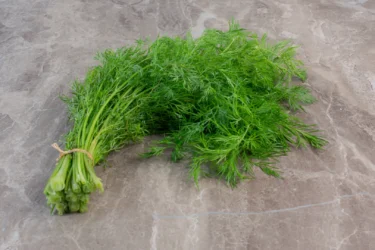
Laboratory tests on dill leaves have shown that they contain bioactive compounds like coumarins and flavonoids which are known to possess antioxidant properties. In a study4 done on spices used regularly in the kitchen, dill leaves were found to have the highest antioxidant and free-radical scavenging properties. Thus, these properties might help in reducing oxidative stress and managing related diseases. However, more studies are required to understand these effects.

Dill leaves might be helpful in eliminating flatulence (stomach gas). Therefore, it is used as an after-meal digestive or mukhwas (mouth-freshener) in some regions. However, this property of dill is needed to be further researched4.
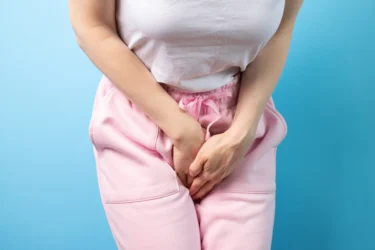
A study4 revealed that the extract of dill leaves might be effective against the pathogens causing urinary tract infections. A bacterium, S.marcescens, is known to cause urinary tract infections. Dill leaf extract might affect this bacterium by not allowing it to attach to the urinary tract wall. However, more research is required to prove these effects. Therefore, kindly seek medical help if you have a urinary tract infection and refrain from self-medicating.
Though various studies have shown the potential uses of dill leaves in various conditions, these are insufficient and there is a need for further studies to establish the true extent of the benefits of dill leaves on human health.
Flavonoids, which have been demonstrated to help lower the risk of heart disease and stroke, are abundant in dill leaves. But dill leaves are believed to potentially benefit heart health for other reasons as well. Dill has been shown to lower LDL cholesterol levels in animal studies. Although it’s not apparent if dill would affect cholesterol levels similarly in humans, this preliminary study is a promising beginning step. From my perspective, reducing cholesterol levels is crucial for keeping a healthy heart since high LDL cholesterol levels are linked to higher risks of heart disease5.
Dr. Siddharth Gupta, B.A.M.S, M.D (Ayu)
Dill leaves can be used in their fresh form or their dried form. It is also known as dill weed. Most popular uses are given below.
You must consult a qualified doctor before taking any herbal supplements. Do not discontinue or replace an ongoing treatment of modern medicine with an ayurvedic/herbal preparation without consulting a qualified doctor.
In my experience, dill leaves mix nicely with fish and eggs, which are healthy foods for diabetics to eat, in addition to having anti-diabetic effects. Dill leaves and other herbs may be a tasty substitute for sweeter, artificial flavourings when used to flavour meals5.
Dr. Rajeev Singh, BAMS
More research and exploration are required for stating the side effects of dill leaves. It can rarely cause allergic reactions, vomiting, diarrhoea, itching and throat swelling3. Therefore, it is suggested that you use dill leaves cautiously and consult a physician immediately if you notice any symptoms.
There is insufficient data regarding the effects of dill leaves on children, pregnant women, lactating mothers, and elderly individuals. Usually, dill leaves are suggested not to be eaten during pregnancy3. Therefore, it is suggested to kindly consult a doctor before using dill leaves for these individuals particularly.
Dill leaves might react with unknown drugs and may alter their activity. However, such data has not been found yet. Therefore, more research is required to state the reactions that drugs might have with dill leaves. It is advised that you consult a doctor and discuss with them whether it is safe for you to consume dill leaves, especially if you are undergoing treatment for any condition and are on any medications.
Also Read: White Onion: Uses, Benefits, Side Effects By Dr. Smita Barode
Dill leaves might be good for stomach pains, digestion, diabetes, cholesterol, etc. More research is required to prove these effects. Kindly consult a doctor1,3.
Dill leaves can be used fresh or dried. They can be used as a condiment or herbs, for cooking, in salads, sandwiches, pickles, etc1.
Yes. Dill leaves might be helpful for diabetes as it is may help lower blood glucose levels. In addition, it may help reduce oxidative stress and cholesterol which might be elevated due to diabetes.3 Kindly seek medical help for the proper diagnosis and treatment of diabetes. Moreover, diabetes is a serious condition, kindly refrain from self-medicating.
No. There are no proven effects of dill leaves on weight loss. More research is required for the same.
Yes, it might have side effects. Rarely, it might cause itching of the tongue, vomiting, diarrhoea, swelling of the mouth, throat swelling and, allergic reactions3. Ensure that you seek medical help immediately if you notice any unusuality after consuming dill leaves.
Disclaimer: The information provided here is for educational/awareness purposes only and is not intended to be a substitute for medical treatment by a healthcare professional and should not be relied upon to diagnose or treat any medical condition. The reader should consult a registered medical practitioner to determine the appropriateness of the information and before consuming any medication. PharmEasy does not provide any guarantee or warranty (express or implied) regarding the accuracy, adequacy, completeness, legality, reliability or usefulness of the information; and disclaims any liability arising thereof.
Links and product recommendations in the information provided here are advertisements of third-party products available on the website. PharmEasy does not make any representation on the accuracy or suitability of such products/services. Advertisements do not influence the editorial decisions or content. The information in this blog is subject to change without notice. The authors and administrators reserve the right to modify, add, or remove content without notification. It is your responsibility to review this disclaimer regularly for any changes.
Comments

Leave your comment...
You may also like
Comments